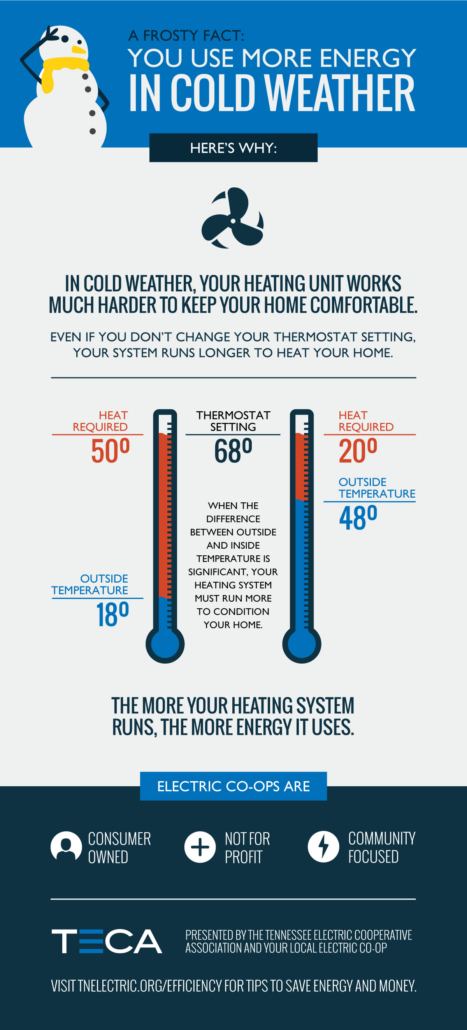NASHVILLE – Tennessee’s electric cooperatives, along with the Tennessee Valley Authority, ask consumers to voluntarily reduce nonessential electricity use through mid-morning Wednesday. Small, voluntary actions will help power providers to continue delivering reliable service during this period of exceptionally cold temperatures across the region.
“A little effort can go a long way at a time such as this,” says Mike Knotts, CEO of the Tennessee Electric Cooperative Association. “Periods of extreme cold can have a major impact on the demand for energy. Taking voluntary steps now helps us ensure that the power grid remains stable and energy is available to meet the needs of the region.”
Here are some quick and easy ways to make an impact and save you money:
- Lower your thermostat to 68 degrees or a temperature that is both comfortable and safe.
- Set your ceiling fan to spin clockwise, which pushes warm air down.
- Wear additional layers and bundle up to stay warm.
- Turn off everything when you leave a room.
- Open window coverings on the sunny side of your home. Close them overnight to retain that heat.
- Delay using washing machines, dryers, dishwashers and other large appliances until the warmest part of the day when overall heating demand is lower.
Other energy efficiency tips to consider for long-term savings:
- Weather strip leaky doors and windows. Sealing air leaks saves money on power bills.
- Lower your water heater temperature to 120 degrees.
- Install a programmable thermostat so you can set the temperature to automatically adjust when you are not home.
- Replace incandescent lights with more energy-efficient LED bulbs.
- Unplug electronic devices when they’re not in use.


